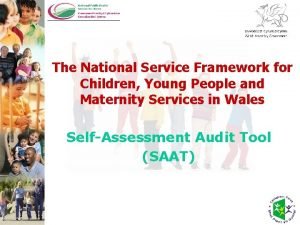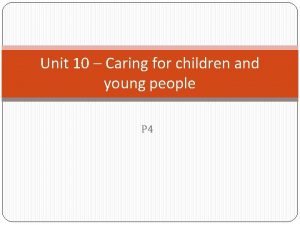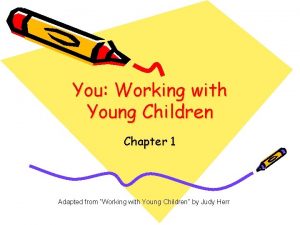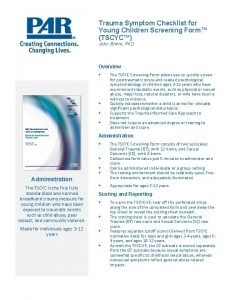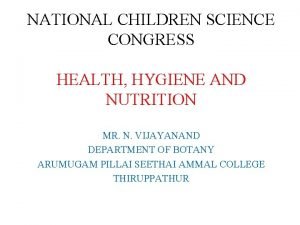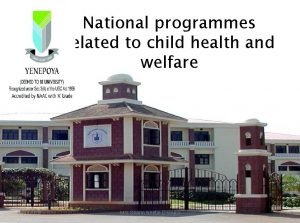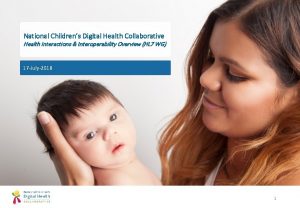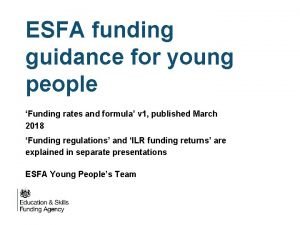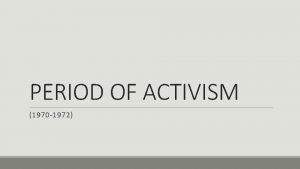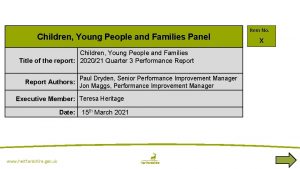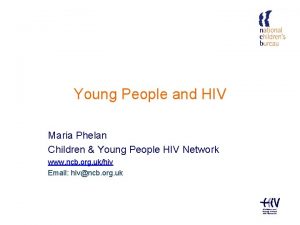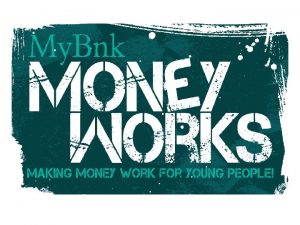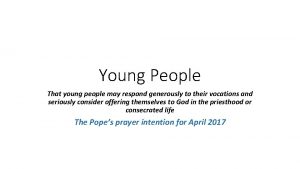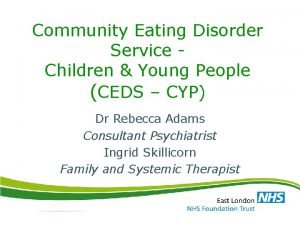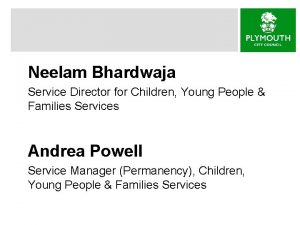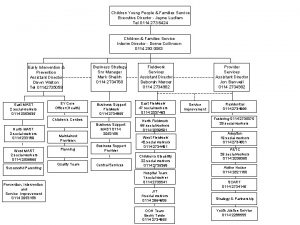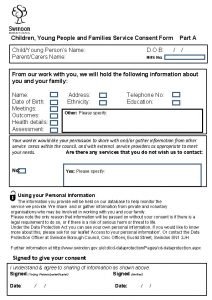The National Service Framework for Children Young People













- Slides: 13

The National Service Framework for Children, Young People and Maternity Services in Wales Self-Assessment Audit Tool (SAAT)

NSF for Children - developed as a partnership between: • Social care • Health • Close links to education, housing, leisure, transport, voluntary sector and other stakeholders (including children, young people and their families)

Children’s NSF - 7 modules: • Acute and chronic illness or injury Chair: Dr Huw Jenkins • Improving health & well being of all children & young people Chair: Prof. Laurence Moore • Disabled children & young people Chair: Joe Howsam • Children & young people in special circumstances Chair: Jane Stacey • Mental health & psychological well being Chair: Alison Cowell • Maternity Chair: Cathy Dowling • Medicines Chair: Rowena Mc. Artney

Measuring Success • The Children’s NSF will only be as good as our ability to implement it • Challenge is to develop a methodology to measure success compatible with performance measurement frameworks already developed and to assist local areas with service & financial planning

SAAT Development: • Web-based tool aligned to both NHS and local government performance measurement systems • National Public Health Service commissioned to develop tool • Health Solutions Wales commissioned to develop the software

Performance Measurement System for the Children’s NSF Key Actions (Evidence-based) Review NSF key actions Measure & benchmark using SAAT Statutory PIs Shared outcome measures Prioritise key actions for delivery Service & financial planning

Objectives of the SAAT: 1. To provide meaningful data to inform local service planning and commissioning / joint commissioning where appropriate. 2. To measure progress and demonstrate action to implement the Children’s NSF. 3. To provide data to NHS to feed balanced scorecard and monitor achievement of Sa. FF targets.

Objectives of the SAAT: 4. To facilitate prioritisation of key actions for delivery. 5. To provide Assembly Government with data to inform financial resource planning and workforce planning. 6. To provide national data to monitor Assembly’s commitment to deliver NSF in 10 years and to report progress.

Pilot of SAAT 29 March – 17 June 2005 6 C&YPFP areas participated: • Caerphilly • Swansea • Wrexham • Torfaen • Flintshire • Carmarthenshire

Findings From Pilot: • Software is user-friendly • Collecting the information to enter into the SAAT is the most difficult part of using the tool • Identifies gaps in service delivery to feed into existing planning mechanisms • Enhances understanding of the roles of other organisations • Improves partnership working • Identifies opportunities for joint commissioning

Data Flow Diagram Welsh Assembly Government C&YP Framework Partnerships ALL WAST HCW & LHBs NHS Annual NHS Targets (Sa. FF) NHS Local Organisations

Strengths of the SAAT: • The same tool to be used across all Wales and all organisations • Provides comprehensive information on the state of children’s service delivery in Wales • Developed by those who will be required to use it • Tool for partnership working – C&YPFPs will be forced into taking an holistic perspective of children’s services • Identifies joint commissioning opportunities • Shares best practice • No need for milestones

Barriers to overcome: • Awareness raising and ownership at the highest level • Framework Partnerships need to be strengthened • Fostering honesty in completion • Training and support for effective use of data • Should not become a ‘paper exercise’ • Visionary leaders needed - skilled in change management
 National service framework for children
National service framework for children Unit 10 caring for children and young people
Unit 10 caring for children and young people Working with young children/answer key chapter 1
Working with young children/answer key chapter 1 Trauma symptom checklist for young children
Trauma symptom checklist for young children Phonemic awareness in young children
Phonemic awareness in young children Hampshire early years advisory team
Hampshire early years advisory team Alcohol consumption causes blood vessels to contract.
Alcohol consumption causes blood vessels to contract. Existanxe
Existanxe National children's science congress projects ideas
National children's science congress projects ideas All national programme list
All national programme list National children's digital health collaborative
National children's digital health collaborative Young people and their world
Young people and their world Esfa funding
Esfa funding It is the result of activism in 1972.
It is the result of activism in 1972.
